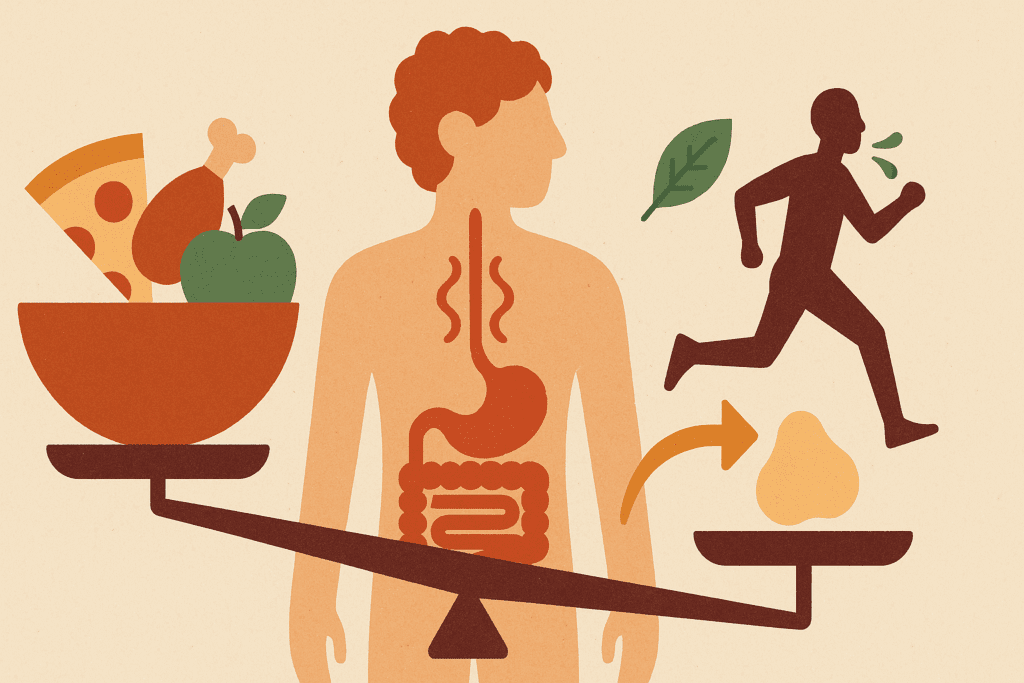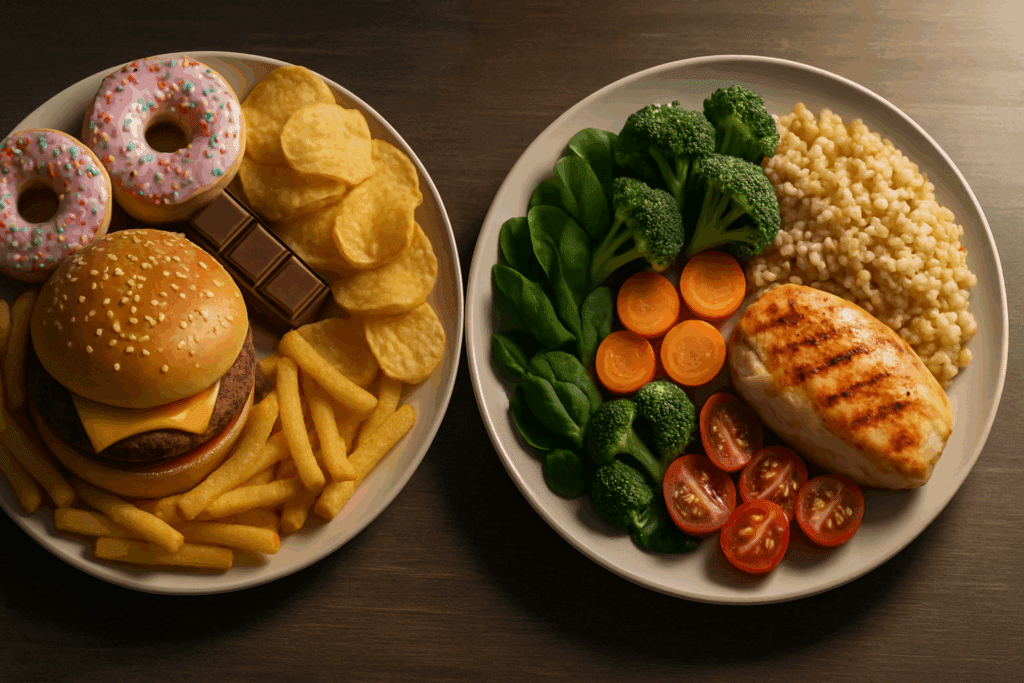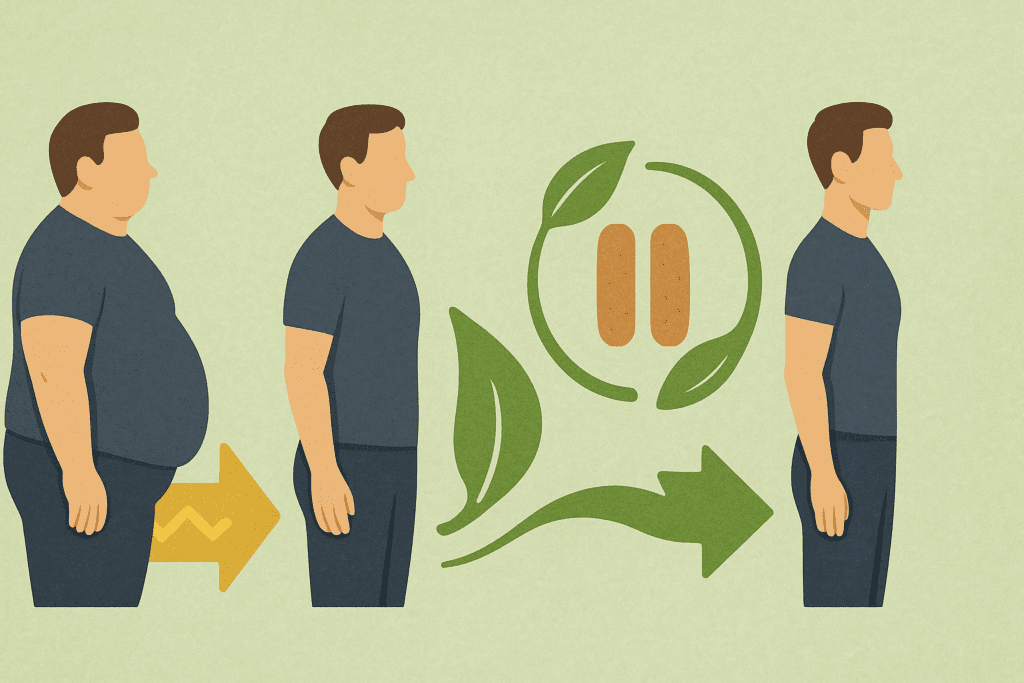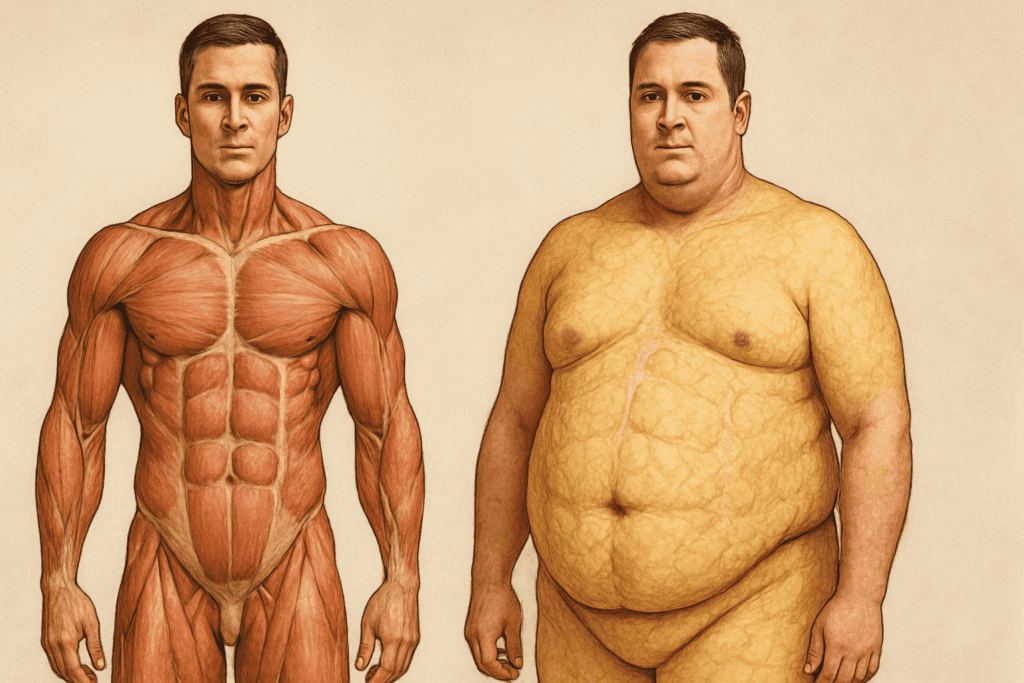Creating a calorie deficit remains one of the most foundational principles in weight loss science, yet it is often misunderstood, oversimplified, or misapplied. For those aiming to lose weight through a sustainable and medically sound approach, understanding what constitutes a good calorie deficit is crucial. A calorie deficit occurs when the number of calories expended through metabolic processes and physical activity exceeds the number of calories consumed through food and drink. The body, lacking sufficient energy intake, turns to stored fat for fuel. However, while the mechanism may sound straightforward, the application of a calorie deficit diet requires nuance, precision, and a strong grasp of nutritional science, especially when the goal is lasting fat loss rather than temporary weight changes.
You may also like: Expert-Backed Weight Loss Tips for a Healthier Lifestyle: What You Need to Know for Long-Term Weight Control and Wellness
At its core, a well-calibrated calorie deficit diet for fat loss is not about deprivation, but about strategic reduction. It must prioritize health, preserve lean muscle mass, and prevent metabolic slowdown. Calorie deficits that are too aggressive can trigger muscle loss, nutrient deficiencies, hormonal imbalances, and even psychological distress. Conversely, deficits that are too modest may not produce any measurable changes, leaving individuals feeling frustrated and demotivated. This leads us to a key question: what calorie deficit is recommended for weight loss that is both effective and sustainable?

The Science Behind Calorie Deficits and Energy Balance
To begin with, it is important to understand the physiological basis of a calorie deficit diet. Every individual has a Total Daily Energy Expenditure (TDEE), which includes their Basal Metabolic Rate (BMR), the thermic effect of food, and calories burned during physical activity. BMR refers to the energy required to maintain basic bodily functions at rest, such as breathing, circulation, and cellular repair. Together with activity levels and digestion, this makes up the total number of calories needed to maintain current body weight. When calorie intake falls below TDEE, the body compensates by using stored energy, primarily in the form of fat.
For a pound of fat to be lost, it is generally estimated that a deficit of approximately 3,500 calories is required. This translates to a daily deficit of about 500 calories for a weekly weight loss of one pound. However, this is a general estimate, and real-world outcomes often vary depending on factors such as individual metabolism, genetics, body composition, and adherence to the diet. Nevertheless, this 500-calorie guideline is often cited when asking, “is 500 calories a day good for weight loss?” The answer depends entirely on context. A 500-calorie total daily intake would be dangerously low for most people and is not advisable without strict medical supervision. However, a 500-calorie deficit from one’s TDEE is widely accepted as a safe starting point.

Determining What Is a Good Calorie Deficit
So what is a good calorie deficit when trying to lose fat while maintaining energy, performance, and metabolic health? Experts generally recommend a deficit of 15% to 25% below maintenance calories. For someone whose TDEE is 2,400 calories, a 20% reduction would yield a target intake of approximately 1,920 calories per day. This level of reduction is often enough to prompt steady fat loss while still providing adequate nutrition and supporting day-to-day functionality. Importantly, this approach allows for sustainability, minimizing the risk of yo-yo dieting, binge-eating cycles, and the loss of lean mass.
It is also critical to tailor a calorie deficit diet for fat loss to an individual’s unique physiology and lifestyle. Variables such as age, sex, muscle mass, physical activity level, and metabolic adaptation all play a role. Someone highly active may tolerate and benefit from a larger deficit, while a sedentary individual or someone with underlying health conditions might require a more conservative approach. The goal is to create a deficit that is large enough to produce measurable fat loss, yet small enough to be maintained consistently over time without adverse effects.

Calorie Deficit Diets: More Than Just Math
While calorie counting is a useful tool, it’s not the sole determinant of a diet’s effectiveness. The composition of the calories consumed plays a major role in how the body responds to a deficit. For instance, a calorie deficit diet composed primarily of refined sugars and ultra-processed foods may technically still result in fat loss, but at the cost of micronutrient deficiencies, blood sugar instability, and increased hunger. In contrast, a nutrient-dense calorie deficit diet rich in lean protein, fiber, healthy fats, and complex carbohydrates will support satiety, hormone regulation, and metabolic health.
Protein intake is especially critical when pursuing fat loss. Adequate dietary protein helps preserve lean body mass during a calorie deficit, enhances satiety, and supports recovery from physical training. A common recommendation is to consume 1.6 to 2.2 grams of protein per kilogram of body weight per day while in a deficit. Moreover, incorporating resistance training can further minimize muscle loss, making a calorie deficit diet more effective and sustainable in the long run. The integration of exercise into a calorie deficit diet for fat loss also increases TDEE, giving dieters more flexibility with their food intake.
Is 500 Calories a Day Good? The Dangers of Extreme Deficits
One of the most common questions individuals ask when desperate for fast results is, “is 500 calories a day good for weight loss?” The short answer is no—not in terms of total intake. Consuming only 500 calories per day, often seen in crash diets or extreme cleanses, is medically unsound for the vast majority of people. Such an intake is considered a Very Low-Calorie Diet (VLCD) and is typically only recommended in clinical settings under physician supervision, often for patients with obesity and specific medical indications.
Extreme calorie deficits can result in rapid water weight loss and muscle breakdown, rather than meaningful fat reduction. The body, sensing a state of starvation, may reduce its metabolic rate to conserve energy, a process known as adaptive thermogenesis. Hormonal disruptions can occur as well, including reductions in thyroid hormone, leptin, and sex hormones like estrogen and testosterone. Psychological side effects such as irritability, fatigue, and an increased risk of disordered eating behaviors also become more prevalent.
A more sustainable and medically supported approach is to ask what calorie deficit is recommended for weight loss that supports both short-term progress and long-term maintenance. Typically, that means a moderate deficit that ranges from 300 to 750 calories per day depending on individual TDEE, physical activity, and health status. These ranges are generally well tolerated, preserve lean mass, and foster healthy metabolic function while producing gradual fat loss.

Adherence, Satiety, and Psychological Sustainability
No calorie deficit diet, regardless of its mathematical precision, will be successful if it cannot be adhered to consistently. Adherence is the single most important factor in long-term fat loss success. Therefore, a good calorie deficit should not only be physiologically sound but also psychologically sustainable. Diets that leave individuals feeling constantly deprived, hungry, or socially isolated are rarely adhered to over time.
To support adherence, experts recommend strategies such as meal planning, mindful eating, and incorporating flexibility through occasional indulgences. Choosing whole, minimally processed foods enhances satiety due to their volume, fiber, and slower digestion rates. Satiety is a cornerstone of diet sustainability because hunger is one of the main reasons people abandon calorie deficit diets. In this regard, calorie density becomes a key factor—by focusing on foods that provide a large volume for relatively few calories, individuals can feel full while remaining in a calorie deficit.
Cognitive-behavioral strategies also play a vital role. Reframing the deficit as a positive choice rather than a punishment can improve mental resilience. Rather than obsessing over every gram or calorie, some people benefit from a more intuitive approach that still maintains a calorie deficit through portion control and consistent habits. Whether tracking meticulously or taking a broader behavioral approach, the goal is long-term adherence without burnout.

Adjusting the Deficit Over Time
Weight loss is rarely linear. As the body adapts to a calorie deficit diet, several physiological responses can reduce the effectiveness of the deficit over time. As body mass decreases, so does TDEE, meaning that the same deficit which initially produced fat loss may eventually stall progress. Additionally, metabolic adaptation—a decrease in BMR due to sustained calorie restriction—can further blunt results.
This is why it’s important to reassess caloric needs regularly. Some individuals benefit from structured diet breaks or refeeds, where calories are temporarily increased to maintenance level to mitigate metabolic slowdown and psychological fatigue. These breaks, when implemented correctly, do not reverse progress but may enhance long-term outcomes. Adaptive strategies like increasing physical activity, modifying macronutrient ratios, or introducing new training stimuli can help reignite progress without resorting to more extreme calorie deficits.
The question of what is a good calorie deficit cannot be answered once and forgotten. It must evolve with the individual’s changing body composition, goals, lifestyle, and preferences. Flexibility and responsiveness are essential to maintaining a calorie deficit diet for fat loss that continues to work over weeks and months.
Medical Considerations and Professional Guidance
While many individuals can safely implement a calorie deficit diet on their own with careful planning and education, others may require professional oversight. Those with underlying health conditions, histories of disordered eating, or hormonal imbalances should seek medical or nutritional guidance before embarking on significant dietary changes. A registered dietitian or licensed nutritionist can help determine what calorie deficit is recommended for weight loss based on clinical indicators, lab results, and a full understanding of the patient’s health history.
Additionally, people who are pregnant, breastfeeding, elderly, or undergoing treatment for chronic illness should not attempt calorie deficits without guidance. For these populations, energy needs are typically higher or more variable, and creating a deficit could compromise health or recovery. Tailoring the calorie deficit diet for fat loss in a way that respects medical context is part of responsible, safe weight management.
Medical supervision becomes even more critical when individuals are tempted by drastic solutions, such as consuming 500 calories a day. While the desire for quick fixes is understandable in a culture obsessed with instant results, the consequences of extreme dieting can be severe and counterproductive. Medical experts emphasize that slow, steady fat loss is more likely to be maintained and less likely to result in complications.

Understanding the Role of Metabolism and Body Composition
One reason why calorie deficit diets must be approached with individual precision is because metabolism is highly variable. Two individuals of the same weight and height can have significantly different TDEEs based on muscle mass, hormonal function, and daily activity. Lean muscle tissue is more metabolically active than fat, meaning that individuals with more muscle require more energy to maintain their weight.
This is why resistance training and protein intake are central to the effectiveness of a calorie deficit diet for fat loss. By preserving or increasing lean mass, the body remains metabolically efficient even while reducing body fat. This also prevents the common pitfall of becoming “skinny fat” – a condition where weight is lost, but a high body fat percentage remains due to muscle loss.
Understanding this balance is essential when determining what is a good calorie deficit. The aim is not just to see the number on the scale go down, but to achieve a healthier, more metabolically robust body composition. That goal is best served by combining a moderate calorie deficit with resistance training, sufficient protein, and a focus on long-term, habit-based nutrition.
Frequently Asked Questions: What Is a Good Calorie Deficit for Weight Loss?
1. How do I know if my calorie deficit is too aggressive for long-term fat loss?
One of the clearest signs of an overly aggressive calorie deficit is persistent fatigue, which goes beyond typical diet-related tiredness and begins interfering with daily functioning. Another red flag is the loss of lean muscle mass despite regular exercise, particularly if protein intake is adequate. Psychological signs such as food obsession, irritability, and social withdrawal are also common in people who maintain an unsustainably low intake. While some individuals think the lower the intake, the better, this mindset often backfires. Instead of asking, is 500 calories a day good, a more helpful approach is to explore what calorie deficit is recommended for weight loss that supports energy, mood, and metabolic health without triggering deprivation.
2. Can I still lose weight with a calorie deficit diet if I have a sedentary lifestyle?
Yes, but the margin for error is smaller. Individuals with sedentary jobs or minimal physical activity often have lower total daily energy expenditure (TDEE), meaning a smaller calorie deficit diet for fat loss must be implemented to avoid dipping below essential energy needs. It’s important to avoid assuming that exercise is the only way to justify a deficit—non-exercise activity thermogenesis (NEAT), such as walking, standing, or fidgeting, can significantly influence daily energy output. For this reason, even light modifications like standing breaks or short walks throughout the day can improve the effectiveness of a calorie deficit diet. When considering what is a good calorie deficit in sedentary contexts, smaller reductions paired with incremental activity changes are often safest and most sustainable.
3. How do hormonal factors affect the effectiveness of a calorie deficit diet for fat loss?
Hormonal balance plays a pivotal role in how the body responds to a calorie deficit. For instance, thyroid hormones influence metabolic rate, and leptin levels drop with sustained caloric restriction, potentially slowing fat loss. Women, in particular, may experience disruptions to reproductive hormones when the deficit is too steep or prolonged, affecting not only fat loss but also menstrual health. Stress hormones like cortisol can rise during chronic dieting, increasing the risk of fat retention around the abdomen. These nuances highlight why understanding what calorie deficit is recommended for weight loss in relation to hormonal health is so critical—personalization and medical input are often necessary for optimal outcomes.
4. Are there smarter ways to cycle a calorie deficit diet to improve results and avoid plateaus?
Yes, strategic cycling methods like diet breaks and refeed days can help mitigate the adaptation that often occurs with prolonged deficits. A diet break typically involves increasing calories to maintenance for a week or two, allowing the metabolism to reset while providing psychological relief. Refeed days, on the other hand, are single days where carbohydrate intake is temporarily elevated to restore glycogen and support hormonal health, especially leptin. These tools don’t erase progress; in fact, they can reignite fat loss and improve adherence. For those asking what is a good calorie deficit, part of the answer may involve not just daily numbers, but how that deficit is structured over time.
5. How does age impact the best calorie deficit approach for weight loss?
As we age, our basal metabolic rate generally declines due to changes in muscle mass, activity levels, and hormonal profiles. This means that the same calorie deficit diet that worked in your twenties might no longer be effective or sustainable in your forties or sixties. Older adults should be cautious with large deficits, as muscle loss accelerates with age, and preserving lean mass is crucial for mobility and metabolic health. Prioritizing protein, resistance training, and smaller but consistent deficits becomes even more important. In aging populations, understanding what calorie deficit is recommended for weight loss involves more than math—it’s about protecting long-term health while achieving slow, steady results.
6. What role does gut health play in the effectiveness of a calorie deficit diet?
Emerging research suggests that the gut microbiome may influence how efficiently calories are extracted and stored. Some bacterial strains have been associated with higher calorie harvest from food, which may partially explain why two people on identical calorie deficit diets can experience different outcomes. Moreover, gut health impacts hunger signals and satiety hormones like ghrelin and peptide YY. Including prebiotic fibers and fermented foods in a calorie deficit diet may enhance digestion, regulate appetite, and support immune function. For those wondering what is a good calorie deficit, gut health might be the missing piece to unlocking better results without stricter restrictions.
7. How can someone maintain social flexibility while following a calorie deficit diet for fat loss?
Many people abandon their calorie deficit diet due to social limitations, such as feeling they can’t attend events, eat out, or celebrate holidays. Incorporating flexible dieting principles—like budgeting calories for special meals or practicing intermittent fasting on less social days—can reduce this tension. Choosing lower-calorie options, focusing on portion sizes, and balancing indulgent meals with lighter days can all help. Instead of seeing your calorie goal as a rigid limit, view it as a budget that you can manage creatively. A practical answer to what is a good calorie deficit must include the freedom to live life fully without sacrificing progress or mental health.
8. Is it possible to achieve body recomposition with a calorie deficit diet?
While body recomposition—losing fat while gaining muscle—is more commonly associated with eating at maintenance or a slight surplus, it is possible in a mild calorie deficit, especially for beginners or those returning after a training hiatus. Adequate protein intake, progressive resistance training, and high-quality sleep are the key ingredients. The process is slower than traditional weight loss, but it often yields better aesthetic and metabolic outcomes. This reinforces the idea that what calorie deficit is recommended for weight loss should sometimes shift focus from the scale to body composition markers like measurements and strength gains.
9. Why do some people fail to see results even when following a consistent calorie deficit diet?
Several hidden variables can sabotage an otherwise well-designed calorie deficit diet. Common culprits include underestimating portion sizes, not accounting for liquid calories or cooking oils, and changes in metabolism due to muscle loss or reduced non-exercise activity. Sleep deprivation and high stress also influence fat loss by affecting insulin sensitivity and increasing cravings. For those diligently adhering to a plan but seeing no changes, reassessing energy output and intake accuracy is key. In such cases, refining the answer to what is a good calorie deficit may involve both scientific recalculation and lifestyle adjustments.
10. Is consuming only 500 calories a day ever appropriate for fat loss?
While the question is 500 calories a day good for fat loss arises often, the answer is that it is rarely appropriate outside of medically supervised contexts. Very low-calorie diets (VLCDs) are typically reserved for individuals with obesity who require rapid weight loss for surgical or health reasons and are under clinical observation. For the average person, consuming just 500 calories can lead to nutrient deficiencies, hormonal imbalances, and a severely compromised metabolism. Psychological effects such as binge eating and food fixation are also common aftermaths of extreme restriction. It is far more effective to consider what calorie deficit is recommended for weight loss based on personalized energy needs, rather than chasing dangerous extremes.
Conclusion: Finding the Right Calorie Deficit for Lasting Fat Loss Success
In the end, the question of what calorie deficit is recommended for weight loss must be answered through the lens of science, individualization, and sustainability. A good calorie deficit is one that respects the body’s needs, adapts to changes over time, and supports not just fat loss, but overall health. While a 500-calorie deficit per day is often a reasonable starting point, the real answer lies in aligning your deficit with your lifestyle, energy requirements, and long-term goals.
Extreme deficits, such as consuming only 500 calories a day, are not good for most people and carry significant risks. Instead, a moderate calorie deficit diet for fat loss—supported by nutrient-dense foods, resistance training, adequate rest, and psychological flexibility—is more likely to yield sustainable results. Every individual deserves a plan that is tailored, respectful of their physiology, and rooted in the principles of effective nutrition science.
By understanding what is a good calorie deficit and how to apply it in a real-world context, individuals can move beyond fad diets and toward meaningful, lasting changes. Fat loss is not just about eating less, but about eating smarter, moving more intentionally, and making choices that support your body’s health for the long term. In doing so, the calorie deficit becomes not just a weight loss strategy, but a gateway to improved wellness, vitality, and confidence.
Further Reading:
What Is a Calorie Deficit, and How Much of One Is Healthy?
What should you know about a safe and effective caloric deficit for weight loss?
What is a Calorie Deficit Diet: A Beginner’s Guide to Weight Loss


